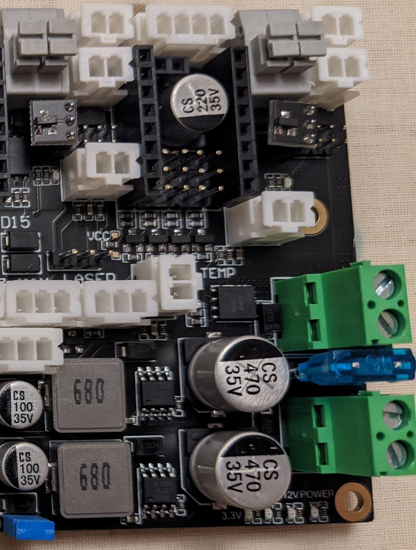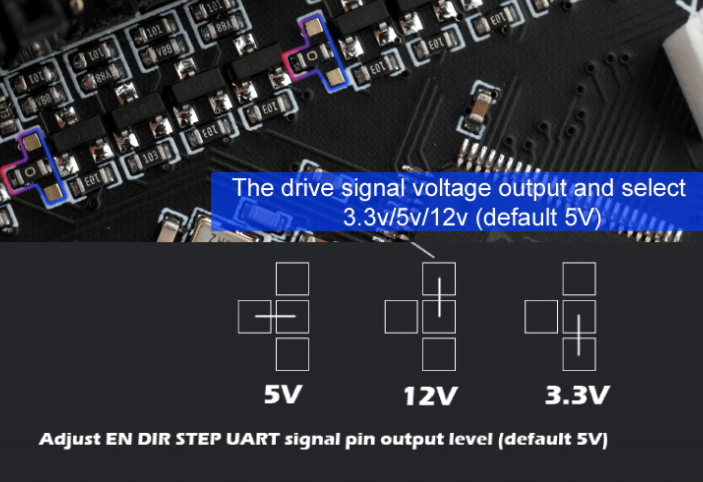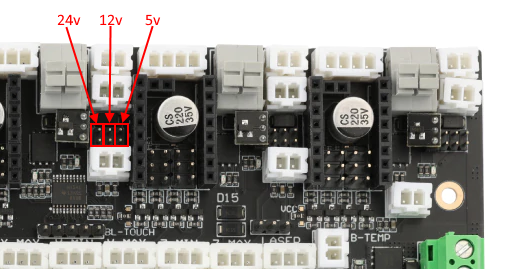Overview
This page covers any general information for the Fly-CDYv3 board.
It is currently available through AliExpress
Board Fuses
The board is supplied without the fuses installed.
It is supplied with different fuses than the listing on AliExpress. The fuses should be installed as shown below.

Driver Jumpers
The jumpers should be installed as below. “Common Interpolation” should be used for standalone drivers. “SPI mode Interpolation” is supported for TMC5160 drivers. “UART mode Interpolation” should be used when using smart drivers (i.e. TMC2208, TMC2209, TMC2225 and TMC2226)

Z Driver Jumpers
If only one Z output is being used, jumpers should be installed on the other Z output as shown below.
Driver Diag Pin
The driver diag pin is used for sensorless homing and stall detection.
The Fly-CDYv3 does not have a way of disabling the diag pin as it is designed to be used with Fly-2209 drivers which have a switch on the underside of them for disabling the diag pin.
If you plan on using endstops rather than sensorless homing and do not have the Fly-2209 drivers, you need to bend or remove the diag pin.
Driver Signal Voltage
The output voltage of each driver EN, STEP and DIR can be configured to either 3.3v, 5v or 12v. The default is 5v.

Fan Mosfets
The Fly-CDYv3 has a unique feature in that the fan mosfets are replaceable. Each mosfet (AO3400) controls one of the fan outputs.

Fan Voltage
The fan voltage can be set using jumpers to either 5v, 12v and Vin.
Set them as shown below.

Input voltage
The board can handle an input voltage up to 32v.
Initial Installation
The board that you will receive doesn’t have any firmware installed so when plugged into a computer, the board will show as an unidentified device. Follow the WiFi instructions.